Want to learn about the Filipino BPO industry and how to use it for your business?
As a prime offshoring and outsourcing destination for businesses, the Philippines is also one of the best providers of top-notch BPO services.
In this article, we’ll cover everything about business process outsourcing in the Philippines and how you can leverage it for your company.
Here’s what this article contains:
- What Is Business Process Outsourcing?
- Three Common BPO Services In The Philippines
- Four Reasons Why BPO Has Boomed In The Philippines
- Four Steps To Outsource Business Process Work To The Philippines
What is business process outsourcing?
Business process outsourcing is an activity where a company contracts its non-core work to an external entity. Instead of doing the work themselves, the company hires a third-party service provider to do it for them. Traditionally, the third-party service provider has been a company, but with the growth of the gig economy, nowadays this also includes freelancers.
Why do businesses do this?
Outsourcing non-critical work like customer service and data entry lets companies focus only on their core business services. This way, they can give their undivided attention to the activities that matter most to them.
Where can you outsource to?
Most people view BPO as contracting back-office services, like accounting and IT, to a third-party in a foreign country. For example, many businesses outsource customer support to service providers in cheaper countries like the Philippines and India.
However, you can also outsource jobs like HR and legal work to firms within your home country.
You just won’t save as much money by doing so.
Three common BPO services in the Philippines
The Philippines BPO industry largely includes contact centers, knowledge process outsourcing (KPO), data entry and accounting services.
Here’s a closer look at some of these services:
1. Call center services
Most businesses handle tons of voice calls and non-voice interactions with customers as part of:
- Telemarketing.
- Customer care.
- Technical support.
While these calls are important, they don’t necessarily have to be done by your company’s staff. Anyone with the right training and information can deal with these calls effectively.
Instead of wasting your resources on handling all these calls — why not hire a third-party to manage them for you?
This allows you to focus on other core activities that really need your staff’s input.
2. Accounting services
It’s no secret that accounting is a tiring and time-consuming activity.
However, it’s also one of the most critical business operations.
When it comes to accounting, you need to be precise. Your organization can’t afford to mess up your finances or you could be staring at big financial and legal issues later on.
To ensure that your finances are always in check — why not outsource your accounting activities to dedicated service providers?
As they’re well-versed in the field, they’ll take all the precautionary steps to ensure that your finances are always accurate and up-to-date.
3. Data entry services
Outsourcing data entry services is one of the most common BPO activities.
Why?
Because even though it’s a time-consuming activity, it’s usually very routine.
As this isn’t a technical job, most companies are comfortable outsourcing it to service providers. By outsourcing it, they can save tons of time — allowing their employees to focus on more important, complex tasks instead.
Also, as it’s fairly simple, there’s very little scope for problems to pop up — making it a reasonably safe activity to outsource.

Four reasons why BPO has boomed in the Philippines
The Philippines BPO industry is thriving with new jobs popping up in fields like social media, app development and artificial intelligence.
The 2019 Tholons Globalization Index report even lists three Philippine cities in the top 100 outsourcing destinations:
- Manila (second)
- Cebu (12th)
- Davao (95th)
But why is outsourcing to the Philippines so popular?
Here are four reasons why the Philippine BPO industry is booming in 2019:
1. High-quality talent at low cost
When companies look to outsource, they want to save costs without compromising on quality.
With an abundance of skilled labor coupled with low wages, the Philippines is the perfect BPO hub.
Most Filipino graduates are skilled in areas like accountancy, nursing, and information technology — making them perfect for most typical BPO services.
However, that isn’t all.
The Philippines government also offers training in BPO sector requirements through its TESDA (Technical Education and Skills Development Authority) programs.
As a result, you have tons of young workers who’ve been trained specifically to deal with your BPO needs.
2. English proficiency
One of the risks of outsourcing to a foreign country is the potential language barrier. As the country’s workforce may not be fluent in the language of your choice, you won’t be able to communicate with them properly.
Fortunately, that’s where the Philippines has the edge over other BPO giants like China.
Filipinos speak English more fluently than most other foreign countries.
With English as a national language alongside Filipino, the Philippines has one of the largest English speaking populations in the world.
As you’ll face no communication issues with Filipino workforces, they’re perfect for your call center services. They’ll have no trouble conversing with your customers and giving them what they need.
3. Data security regulations
One of the concerns people have with outsourcing is the security concerns over sharing important data with a third-party. To alleviate these concerns, the Philippines government introduced various policies to protect data security.
Any individual or company violating the Philippines Data Privacy Act can face imprisonment for up to six years and be fined an amount between $20,000 and $100,000. With such strict laws in place, you can rest assured that your data will never reach the wrong hands.
4. Tax benefits
One of the primary benefits of outsourcing is reduced costs.
However, lower labor costs aren’t the only way to achieve that.
A lot of companies turn to countries like the Philippines because of their favorable tax laws too.
To support the growing BPO industry, the Philippines government introduced the Special Economic Zone Act.
Under this act, foreign companies gain tax benefits and exemptions like:
- Four-year corporate income tax exemption.
- Local tax and permits exemptions.
- Duty-free import of equipment, raw materials, supplies, etc.
- Permanent residence for foreign investors and their immediate family.
On top of this, you can also register your business with the Philippine Economic Zone Authority (PEZA) to receive additional incentives and privileges.
Four steps to outsource business process work to the Philippines
1. Understand the BPO industry in your niche
When you’re looking to outsource to the Philippines, it’s easy to be overwhelmed.
Why?
The Philippines outsourcing industry caters to hundreds of different business requirements!
If you don’t have a clear idea of the Filipino BPO industry, it’s difficult to get things done.
So your first task is to perform in-depth research about the industry. You need to analyze information like:
- How your competitors are leveraging BPO to their advantage.
- The types of services and the best service providers in your niche.
- Identify the potential risks involved and how to mitigate them.
You can also refer to BPO roadmaps released by the Information Technology and Business Process Association of the Philippines (IBPAP) for a deeper look at the IT industry. This way, you’ll get some basic knowledge of how the industry works before trying to leverage it for your company.
2. Choose what services to outsource
The next step is to decide what activity you want to outsource.
But how do you choose the right one?
To help you answer that, ask yourself:
Is it a core competency?
Remember, the goal of BPO is to outsource non-critical tasks to help you focus on your core competencies.
For example, if your business is well-known for customer service, don’t outsource it. Instead, focus on outsourcing other activities that you’re not particularly skilled at such as accounting or marketing.
How comfortable are you with sharing it with a third-party?
With outsourcing, you cede some of the control you’d have with an in-house workforce to a third-party. This might not be a big deal if the task is fairly simple and not a key business operation.
However, if it’s an incredibly vital task, you may be better suited to managing it in-house.

3. Team up with an outsourcing partner
There are hundreds of Filipino companies providing services for the activity you want to outsource.
But how will you choose the one that best suits your needs?
To select the right outsourcing partner, you’ll need to:
- Screen outsourcing companies as if you’re hiring an employee.
- Check reviews and get referrals from industry peers.
- Choose a partner that has an excellent track record that balances cost and expertise.
To help you get started, here’s a quick glance at some of the best BPO companies in the Philippines:
A. For corporates and enterprises
Accenture, Teleperformance and SYKES are popular BPO firms that largely cater to enterprises. Here’s a closer look at them:
1. Triniter

Triniter is one of the globally recognized BPO companies in the Philippines. With their 10+ years of experience in BPO industry and 98.7% clients retention rate, they are one of the favorite choices for the companies in the world.
Key BPO services:
- Customer support services
- Back-office support services
- Automation and AI services
2. Accenture

The global tech giant Accenture is one of the biggest BPO companies in the Philippines. It has over 22 centers across the country — with a presence in Manila, Cebu and Ilocos.
Key BPO services:
- Marketing.
- Accounting and finance.
- Supply chain management.
- Human resource and talent acquisition.
3. Teleperformance
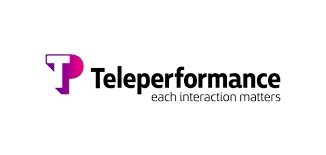
A popular call center in the Philippines, Teleperformance is a company that provides cross-channel customer services.
Key BPO services:
- Digital marketing.
- Customer care.
- Technical support.
4. SYKES

SYKES was the first BPO company in the Philippines. A leader in customer engagement services, the company also offers digital marketing solutions.
Key BPO services:
- Talent acquisition and development.
- Transaction handling.
- Risk Management.
- Customer service coaching and engagement.
B. For small and medium businesses
Here are the top Philippine BPO companies for SMBs:
1. EMAPTA Versatile Services

EMAPTA offers global services for staffing and business solutions. They specifically cater to SMBs and have around 11 locations around the Philippines.
Key BPO services:
- Recruitment and acquisition.
- Data entry and processing.
- Accounting and finance.
- Technical support.
2. Arcanys

Arcanys is a software development and IT-BPO firm in the Philippines. It has tons of skilled Filipino developers who provide excellent software solutions for startups and businesses.
Key BPO Services:
- Software design and user experience.
- Technical support.
- QA and customer care.
3. KMC Solutions

A fast-growing outsourcing services supplier, KMC offers serviced offices and coworking spaces in the Philippines. It also has dedicated virtual teams for clients in the United States, Europe and Australia.
Key BPO Services:
- Staff leasing.
- HR and Payroll Management.
- Virtual offices.
- Private offices and co-working spaces.
Other popular outsourcing companies in the Philippines include:
- Concentrix
- TeleTech
- JPMorgan
- Sitel
- Thomson Reuters.
4. Use the right tools
The problem with outsourcing work is that it’s hard to monitor your projects.
As your outsourced team could be a thousand miles away, it’s hard to monitor them actively and ensure that your project stays on track.
Luckily, some smart tools and applications will help you to:
- Track your work progress.
- Monitor your outsourced staff during work hours.
- Communicate effectively with them.
Here are the types of tools you’ll need when outsourcing to the Philippines:
1. Project management tools
When your project is being executed thousands of miles away, you need a platform to:
- Plan and delegate the work.
- Manage and store all the related files.
- Track and assess the progress of the project.
Project management tools help you do this. They give you a centralized space for your projects to help you plan, run and manage your outsourced work efficiently.
When looking at a project management tool, look at tools that have:
- Gantt charts – for high-level project overviews and scheduling.
- Multiple views – to adapt to different workflow styles.
- Priorities – to help your team attempt the right tasks first.
- Integrations – to easily connect with your other tools.
A few good project management tools to consider are ClickUp, Wrike, Workzone and Jira.
2. Communication tools
Communication is essential if you want your project to stay on track. You’ll need to communicate project demands, updates and recommendations to your outsourced team for smooth project progress.
But if you’re outsourcing work to teams that are thousands of miles away, how do you communicate with them?
Use messaging tools:
Messaging tools like Slack and Fleep make it incredibly easy to:
- Create channels for team-specific conversations.
- Exchange project data and progress updates.
- Integrate with your project management tools.
Use video calling tools:
Using video conferencing tools like Zoom and Skype lets you:
- Conduct meetings with your outsourced team.
- Communicate effectively via audio or video.
- Share your screen for detailed planning walkthroughs.
3. Performance tracking tools
One of the problems with outsourcing work is that it’s hard to verify the claims given to you by your service provider
There’s no way to verify:
- How productive your outsourced team is.
- If your projects actually took that long to finish.
- If they pass idle-time as work hours.
- If they’re only doing your work when you’re being billed.
Luckily, there is one way to monitor all this.
All you have to do is use performance monitoring tools like Time Doctor.
Time Doctor is a powerful performance tracking software. It lets you:
- Monitor the activities of your outsourced staff during work hours.
- Track the time they spend on your projects.
- Identify poor-time usage and hold the employee accountable.
- Ensure that your outsourced staff is actively working.
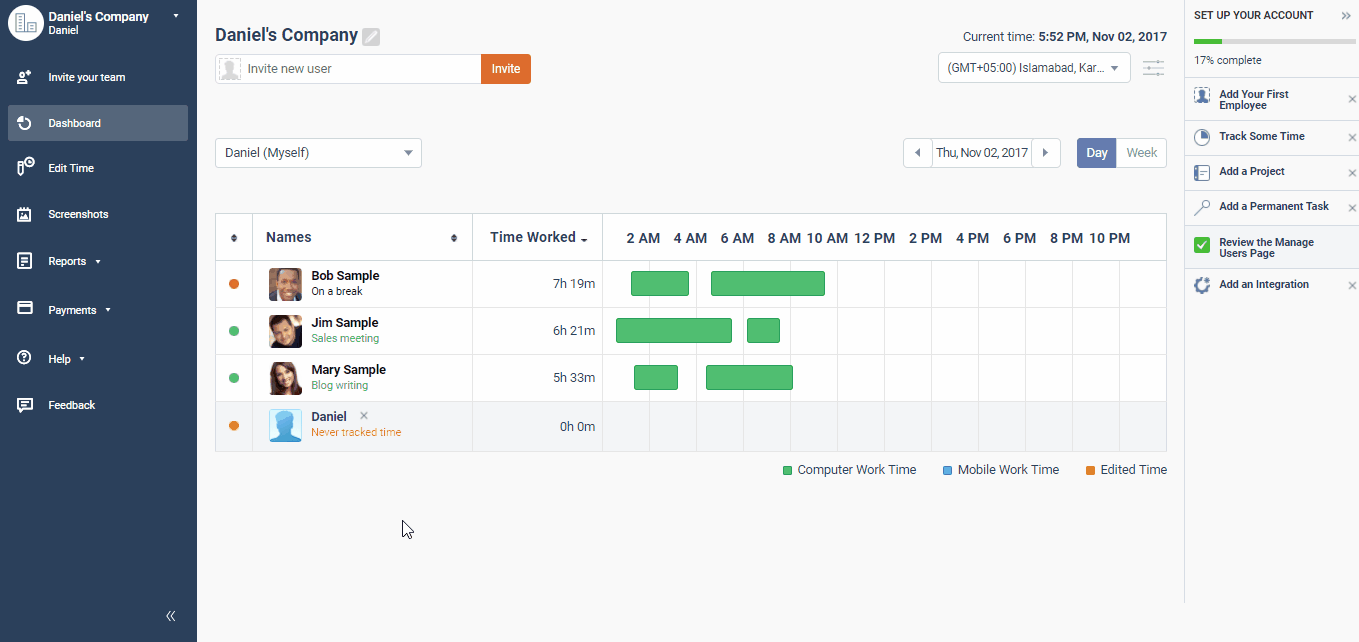
Here’s a closer look at how Time Doctor helps you:
1. Accurate project records
The tool accurately tracks the hours your outsourced staff spends on projects to help you identify who’s worked on each task and for how long.
With Time Doctor’s Projects Report, you get a detailed breakdown of hours spent on each project. As these records are accurate to a second, you can use it as a reliable record to pay your outsourced staff on an hourly basis.
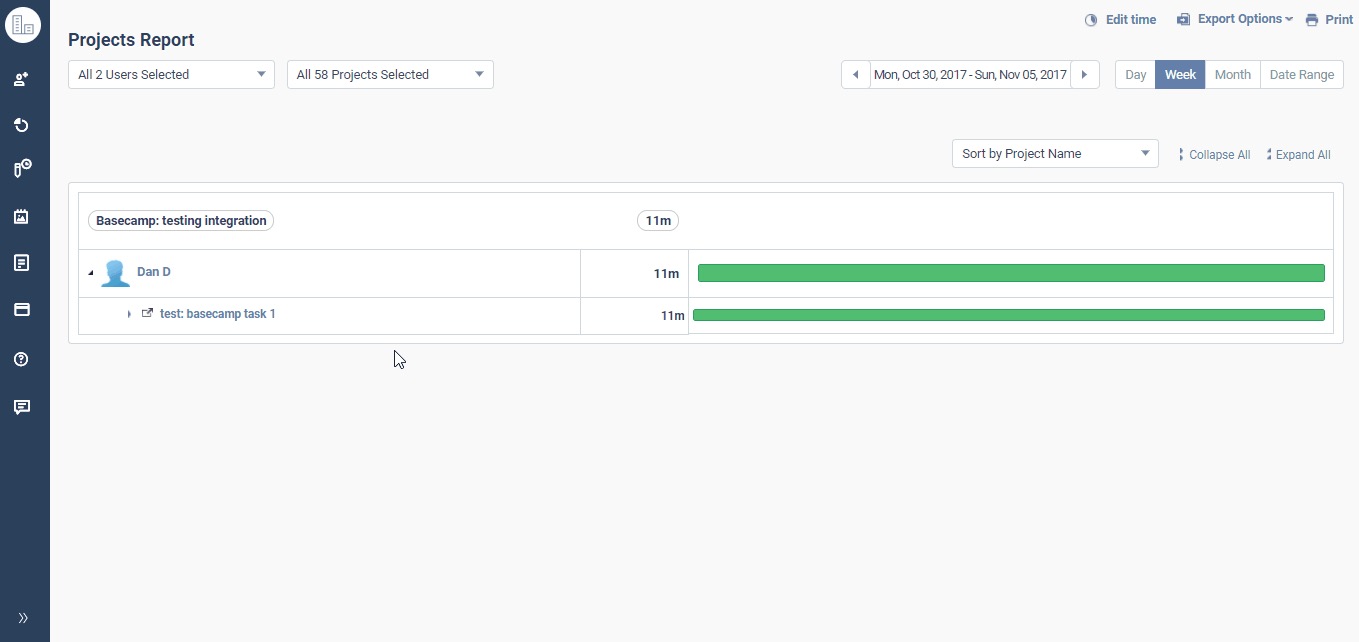
2. Prevent your outsourced team from getting sidetracked
You can’t afford to have your employees distracted during work hours, right?
Luckily, Time Doctor has a built-in inactivity tracker that tracks your employees’ mouse movements and clicks. If they’re inactive for three minutes, the tool automatically displays a pop-up asking if they’re still working or not.
This way, they can only log active hours as hours worked!
Note – Time Doctor does not track what keys were pressed for privacy reasons. It simply determines if any keys were pressed or not.
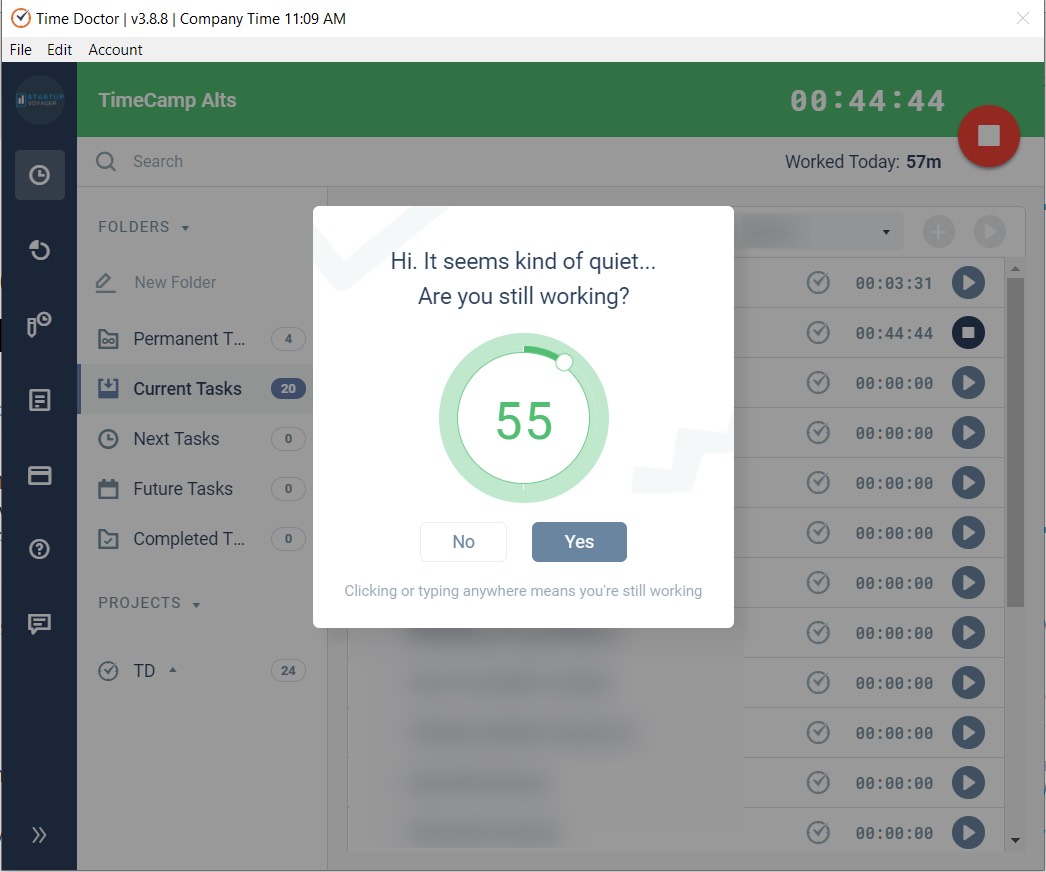
3. Monitor their web and app usage
Worried that your outsourced staff is wasting time on unproductive sites like social media while working?
With Time Doctor, that won’t be an issue.
The tool automatically records your employees’ web and app usage during their work hours. Whenever they access an unproductive site, the app shows them a pop-up asking them if they’re still working or not. This nudge is enough to get them back to your work.
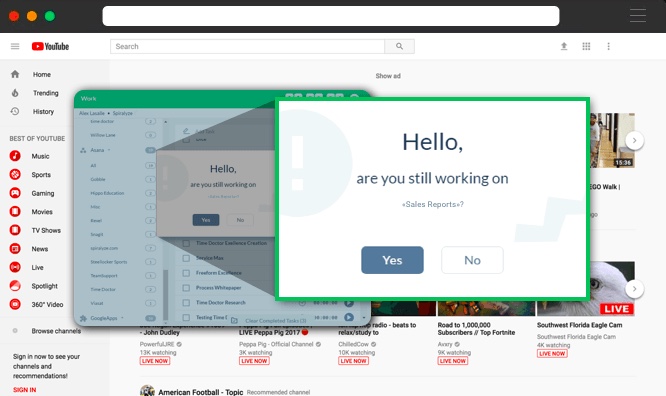
You even get a Web and App Usage Report that displays which websites and apps were accessed by each employee and for how long.
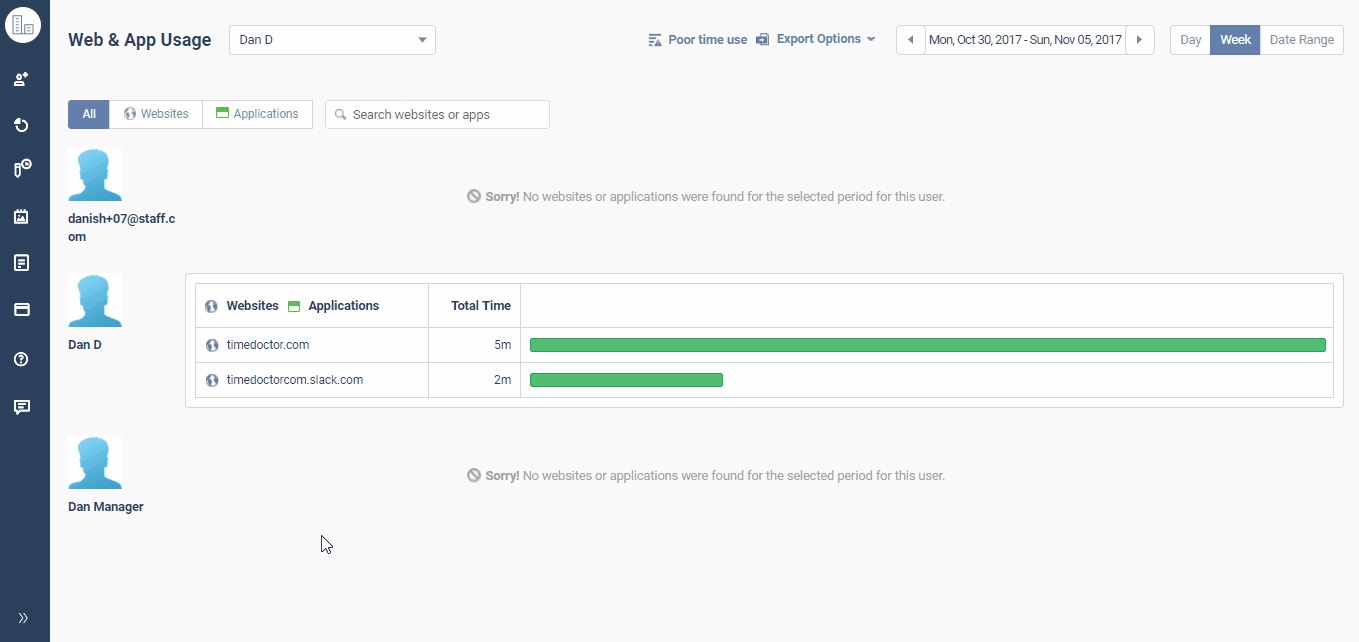
4. Instantly integrate with workplace s`oftware
Time Doctor seamlessly integrates with tons of different workplace tools to streamline your outsourced activities. You can integrate it with your project management tools, communication tools and even your invoicing tools for added functionality.
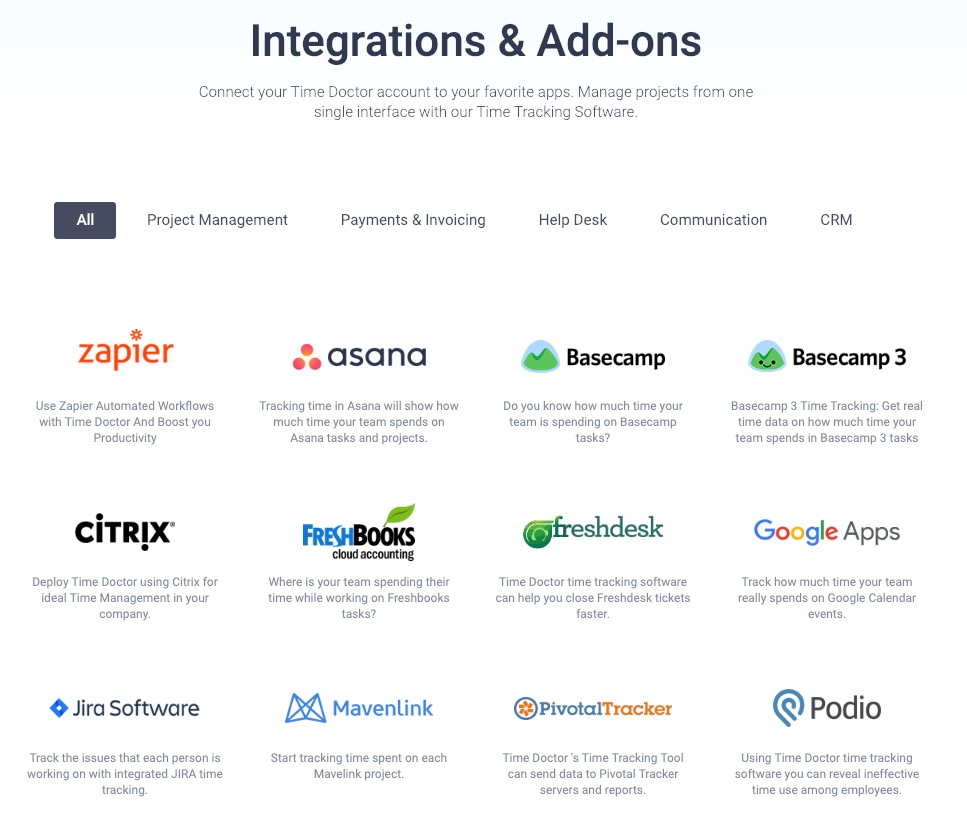
Here’s a complete list of Time Doctor’s integrations.
Conclusion
Outsourcing your business work to the Philippines will help you save costs and time without compromising on quality.
However, you need to carefully plan your approach before making a BPO investment. Research the industry and service providers carefully before deciding to outsource your business activities.

Andy is a technology & marketing leader who has delivered award-winning and world-first experiences.


